Gregory Everett
The Strain of Success: A Predictive Model for Injury Risk Mitigation and Team Success in Soccer
Feb 07, 2024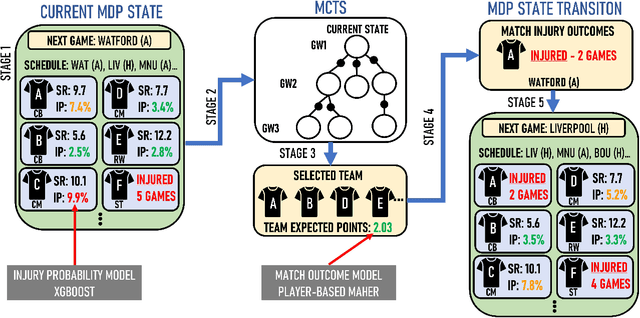
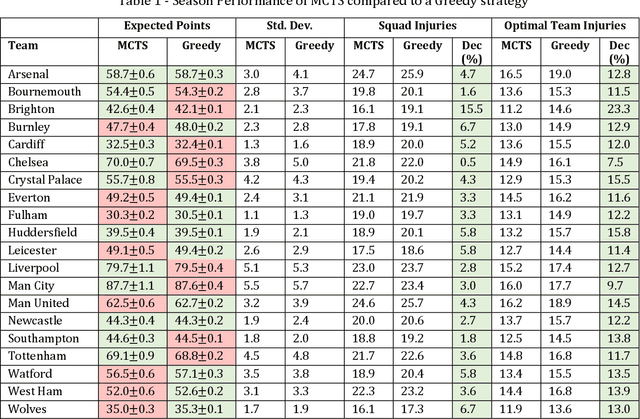
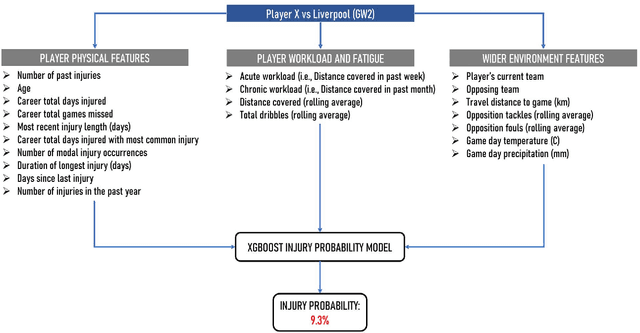
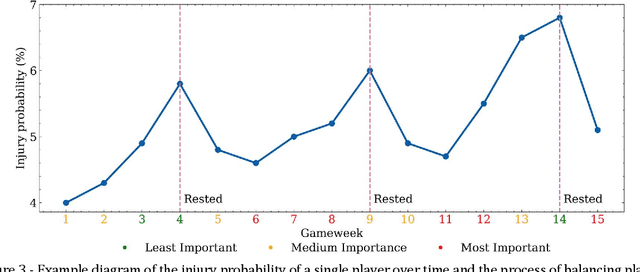
Abstract:In this paper, we present a novel sequential team selection model in soccer. Specifically, we model the stochastic process of player injury and unavailability using player-specific information learned from real-world soccer data. Monte-Carlo Tree Search is used to select teams for games that optimise long-term team performance across a soccer season by reasoning over player injury probability. We validate our approach compared to benchmark solutions for the 2018/19 English Premier League season. Our model achieves similar season expected points to the benchmark whilst reducing first-team injuries by ~13% and the money inefficiently spent on injured players by ~11% - demonstrating the potential to reduce costs and improve player welfare in real-world soccer teams.
Inferring Player Location in Sports Matches: Multi-Agent Spatial Imputation from Limited Observations
Feb 13, 2023

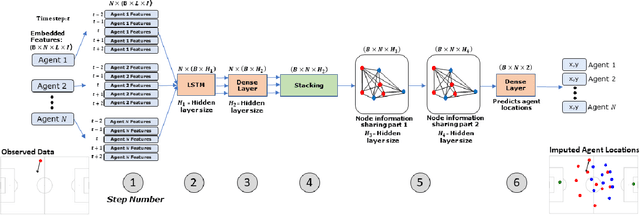
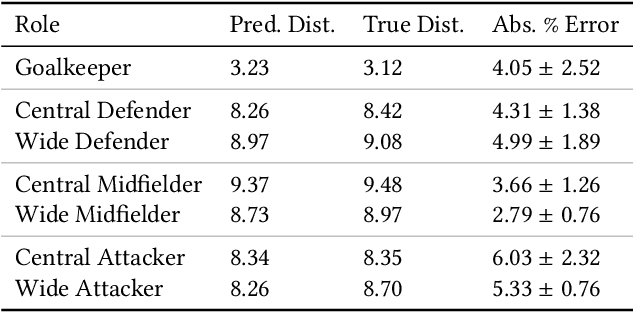
Abstract:Understanding agent behaviour in Multi-Agent Systems (MAS) is an important problem in domains such as autonomous driving, disaster response, and sports analytics. Existing MAS problems typically use uniform timesteps with observations for all agents. In this work, we analyse the problem of agent location imputation, specifically posed in environments with non-uniform timesteps and limited agent observability (~95% missing values). Our approach uses Long Short-Term Memory and Graph Neural Network components to learn temporal and inter-agent patterns to predict the location of all agents at every timestep. We apply this to the domain of football (soccer) by imputing the location of all players in a game from sparse event data (e.g., shots and passes). Our model estimates player locations to within ~6.9m; a ~62% reduction in error from the best performing baseline. This approach facilitates downstream analysis tasks such as player physical metrics, player coverage, and team pitch control. Existing solutions to these tasks often require optical tracking data, which is expensive to obtain and only available to elite clubs. By imputing player locations from easy to obtain event data, we increase the accessibility of downstream tasks.
 Add to Chrome
Add to Chrome Add to Firefox
Add to Firefox Add to Edge
Add to Edge